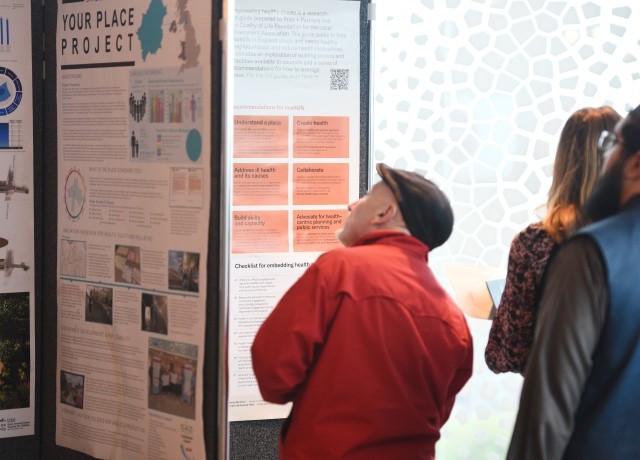
Video+Poster Gallery
The Video+Poster Gallery features an array of visual and dynamic presentations on scientific research, cutting-edge policy, technological innovations, and landmark urban design projects.
On display throughout the Congress, the Video+Poster Gallery provides ample opportunity for delegates to peruse at their leisure in between sessions.

Blake Jackson AIA, LEED Fellow, WELL Faculty, CPHC

Tobias Fellows
A whole-building approach to building conversion projects
Abstract Copy
This presentation will explore the myriad opportunities to solve several challenges facing modern cities – housing shortages; an affordability crisis; and decarbonisation to mitigate our climate crisis (to name a few) – in a time of continually increasing urban expansion, by converting underutilised, outdated and/or unwanted commercial buildings into modern mixed-use multifamily residences. The two speakers, a team of architects who are working in this space, will explore how to qualify conversion projects, utilising a bespoke approach applied across US and Canadian cities, to support their long-term objectives. These goals include: increasing walkability; public transit use; resiliency and greenhouse gas emissions reductions; as well as to take advantage of key legislation that is bolstering and incentivising such conversions in various hot spots, such as in the City of Calgary (Alberta, Canada). This approach includes how such conversions provide opportunities to weave in the following components into the reimagining of these existing buildings, many of which were unincorporated at the time of their initial creation, owing to their vintage:1) affordability;
2) indigeneity;
3) heritage and architectural character;
4) operational excellence;
5) diversity and Inclusion (accessibility); and
6) sustainability, wellness and resilience.
From there, the presenters will detail a process for mapping out a conversion project, illustrating key points through built and in-progress case studies, which starts with the preserving and improving of architectural envelopes, before moving to considerations for mechanical systems, plumbing systems, clean energy production onsite, and, finally, to specifications considerations for new materials added to complete said conversions that support a balancing of operational carbon and embodied carbon impacts. While these case studies will represent projects from across North America, the lessons learned from this presentation will be internationally transferrable, with the goal of serving as a model for how global cities can rethink their ageing building stock, and central business districts, by transforming them into newer, higher, better, and more diverse mixtures of live-work-play use types that improve cities, increase the quality of life within them, and meet future demands today.
Learning Objectives
- Participants will learn how to balance decision making, which impacts operational carbon and embodied carbon impacts when redeveloping heritage buidlings.
- Participants will learn rules about how to qualify a project for adaptive reuse/conversion from Commercial to Residential uses.
- Participants will learn about an "envelope-first" methodology for how to approach adaptive reuse, heritage and/or building conversion projects.

Dr Keith Silika
From Zimbabwe to Salford: Adapting the Friendship Bench for enhanced student mental wellbeing in a digital age
Abstract Copy
This paper explores the innovative Salford Friendship Bench Initiative as a case study for addressing the burgeoning student mental health crisis within a broader healthy city agenda.Recognising the overwhelmed traditional mental health services and the persistent stigma surrounding help-seeking behaviour in UK universities, this initiative adapts the empirically supported Friendship Bench programme from Zimbabwe for a modern university context. The Salford model combines strategically placed physical benches on campus – serving as accessible, stigma-reducing spaces for in-person connection – with a comprehensive digital platform. This digital component, accessible via QR codes on the benches, offers mood tracking, conversation prompts, and a robust resource directory, thereby shifting from analogue to digital support and enabling proactive, preventive care.
The initiative emphasises community-based, peer-to-peer support through trained student volunteers, aligning with the transition towards community-first health services and empowering local communities in health promotion. By integrating physical spaces with digital technology, the Salford Friendship Bench Initiative offers a replicable model for urban universities seeking to create sustainable, accessible, and integrated mental health support systems that contribute to healthier and more resilient urban environments.
Learning Objectives
- Understand the rationale behind integrating physical spaces and digital platforms for mental health support i
- Identify key components for adapting an evidence-based community mental health intervention,
- Analyze how the Salford Friendship Bench Initiative aligns with broader "healthy city" agendas

Eleanor Albin-Clark
Climate urbanism and low-carbon gentrification in the urban Anthropocene: A case study of Holt Town, Manchester
Abstract Copy
This research investigates the intersection of urban regeneration, gentrification, and sustainable imaginaries through the case study of Holt Town, Manchester. Drawing on theoretical frameworks, including the urban Anthropocene, climate urbanism, and low-carbon gentrification, the study interrogates how eco-friendly urban developments may reproduce socio-spatial inequalities, even while pursuing climate resilience and sustainability.The thesis explores the hypothesis that the regenerative vision for Holt Town, branded as a “woodland town” and “urban regeneration exemplar” by Manchester City Council, embodies a broader narrative of the “good Anthropocene,” in which cities are framed as solutions to climate change. This framing, however, risks obscuring the tensions between sustainability and social equity. The research asks: is the built urban Anthropocene inherently tied to gentrification, and can sustainable regeneration be truly just and inclusive?
Methodologically, this project adopts a qualitative, critical approach. Data collection includes critical discourse analysis of the neighbourhood development framework, guided by Norman Fairclough’s framework of social wrongs with a focus on environmental justice. Complementing this are semi-structured interviews with key stakeholders – including urban planners, architects, council members, and local residents – and an autoethnographic field visit to Holt Town, capturing photographic and spatial impressions. Interview data will be transcribed, coded, and analysed thematically to uncover patterns related to sustainability, displacement, and inclusion.
Preliminary findings suggest that while Holt Town’s design emphasises low-carbon infrastructure, active travel, and green public spaces, the regeneration narrative is heavily shaped by top-down imaginaries of urban futurity. These visions may marginalise resident voices and risk displacing vulnerable communities through processes of low-carbon gentrification.
The study contributes to emerging debates in critical Anthropocene urban theory by foregrounding the social implications of climate-conscious urban planning. It calls for more grounded, inclusive approaches to regeneration that genuinely engage local communities and centre social equity alongside environmental goals.
Learning Objectives
- To understand how sustainable city models intersect with urban inequality and gentrification.
- What practical strategies can urban planners and designers adopt to ensure sustainable regeneration projects meaningfully engage with local communities and avoid socio-spatial exclusion?
- How can urban policy frameworks better balance climate resilience with social equity to support inclusive, low-carbon urban futures?
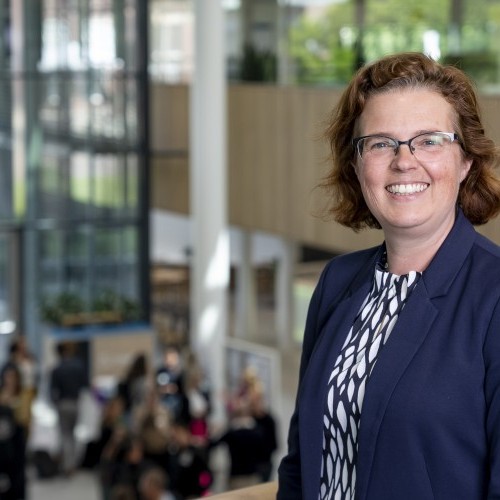
Kristine Mourits

Carola Groenen
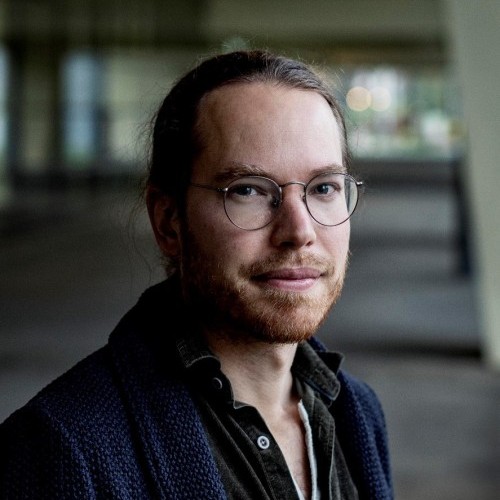
Kevin Raaphorst
Participatory action research on connecting processes, collaboration and knowledge for a healthier living environment for residents in Nijmegen, Netherlands
Abstract Copy
It is crucial that residents' health be sufficiently taken into account during the processes and decision-making of spatial projects order to achieve a healthy living environment. This attention to health in spatial processes is currently limited because of the lack of cross-domain collaboration, resident involvement, and the lack of process understanding. Relevant health-related data hardly plays a role in this. To address this issue, participatory action research was conducted in Nijmegen in collaboration with key stakeholders. The research aimed to identify the necessary collaboration, procedural structures, and content to strengthen the integration of health into spatial planning.This action research has first resulted in an active and broad network of professionals from policy, practice, and research, as well as from the social and physical domains. This network will continue to work together through the initiation of a concrete project in a neighbourhood. Furthermore, the process of spatial projects has been unfolded, detailing the instruments used in each phase and identifying opportunities for incorporating health considerations throughout. From the numerous interviews, group discussions, and case studies, it also became clear that there is a pre-phase in projects. This pre-phase is not an official phase and is not described anywhere, but all the ideas, expectations, casual conversations, and meetings during this period before the project have a significant impact on the course and choices of the project. Another result is that by combining relevant spatial and health data and projecting this onto a map, it contributes to making it clear for professionals where important areas of focus are, areas that have sometimes been overlooked until now. Lastly, conversations with residents, particularly from groups who do not generally attend participation meetings for spatial projects, provide interesting and new information about how different elements of the living environment interact and influence their living environment.
The first conclusion of this participatory action research is that it is possible to study the various aspects (collaboration, process, and content) that are important for creating a healthy living environment in an integrated way, making the complexity of the issue understandable to everyone. Secondly, that health must be integrated into spatial processes in various ways and at different times, even well before a project has started. Thirdly, that through the integration of mapped data and resident perspectives, new areas of focus emerge that are relevant for policy and implementation in spatial projects.
Learning Objectives
- The undefined period before a spatial project has a significant impact on the course and choices during a project.
- By combining spatial and health data on a map, previously unknown areas of concern for a healthy living environment can emerge.
- Participatory action research is an appropriate method to ensure that cross-domain collaboration gets started.
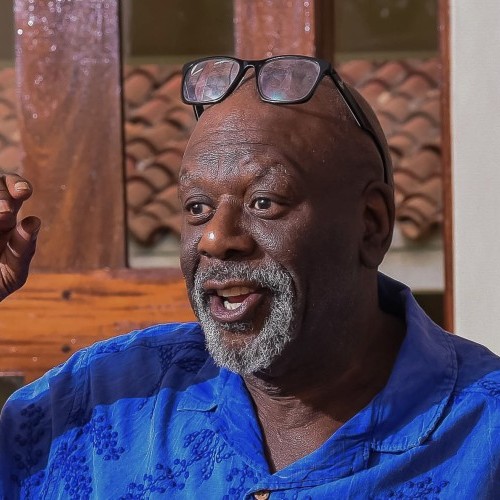
Michael Hamilton

Tamanda Walker
The Black Systemic Safety Fund
Abstract Copy
The Black Systemic Safety Fund was an 18-month process designed and facilitated by the Ubele Initiative and Reos Partners using a social lab approach. Core to the process was a desire to put power into the hands of Black and racially minoritised communities to define for themselves how safety might be understood and interpreted within their own localities.It was a process designed to understand how more community-driven interpretations of safety might shape and influence the allocation of resources to address local safety challenges using a participatory grant-making (PGM) approach that shifted decision-making beyond understandings of safety influenced by funders and other public systems, crime and justice to truly ensure the thriving Michael Hamilton and Yannick Wassmer adopted facilitation approaches. These approaches centred on the use of music, art, play and creativity as a means of moving through ‘stuck problems’ . Within residential workshops, this involved working alongside Drew Sinclair, a multidisciplinary artist and creator with a specialism in community work. The approaches employed throughout the process were guided by Theory U, an action-research and awareness-based method for changing systems and addressing complex social issues pioneered by Otto Scharmer.
The learning partnership team took an ethnographic approach to learning work. This involved participating in and observing group processes and workshops, gathering a range of additional data, and reflecting collectively on emerging insights throughout the project. These insights were used to inform, refine, and make improvements to the work of the implementing partners – Impact on Urban Health, the Ubele Initiative, and Reos Partners – over the duration of the process. The analysis took place over three key phases:
Phase 1: Initial and in-depth analysis of interview transcripts to identify core and sub-themes and learning;
Phase 2: Critical reflection on core and sub-themes to explore issues of power and coloniality – e.g., identifying silences, the unsaid, and other elephants or sticky issues to be surfaced; and
Phase 3: Sharing and facilitating a discussion of all learning and analysis with participants at the project’s final workshop in order to sense-check and identify points of resonance and dissonance among participants.
The interviews conducted with 15 participants (60 per cent) served as the largest source of data for this report. Apart from one interviewee, the majority who shared their perspectives at interview were involved from the beginning to the end of the process, and they were generally more engaged in participant-led initiatives, such as learning journeys and prototyping activities.
Learning Objectives
- How to design responses to safety created by the community with lived experience
- How to develop new ways of allocating resourses based on the communities own perception of its need
- How to develop social lab methodology that centered the voice of the black community

Jo Morrison
Digital placemaking for healthier cities: Reimagining place through technology, spatial practice and co-design
Abstract Copy
Building on earlier research for the NHS – ‘Digital placemaking for health and wellbeing in North East London’ – this talk/poster presents a concise and visually engaging exploration of how digital placemaking can contribute to healthier, more connected urban and community environments. As cities face increasing pressures on public health, social cohesion and environmental sustainability, there is a growing need to reframe how we think about the role of technology in shaping our shared spaces.The poster is structured around three core learning objectives:
1. Understanding the conceptual foundations: I introduce the concept of digital placemaking – the strategic use of digital tools to enrich the experience of physical place – and explore its relevance in promoting health and wellbeing. Visual elements and brief case studies illustrate how digital interventions such as interactive installations, location-based storytelling, and sensory experiences can foster a sense of connection, encourage physical activity, and support mental health in public spaces.
2. Reshaping spatial practice: Through diagrams and annotated examples, the poster demonstrates how digital technologies are transforming our relationship with place. It invites delegates to consider new modes of spatial interaction and mapping.
3. Applying a practical framework: The final section introduces a user-friendly spatial framework developed to guide urban professionals, designers, policymakers and community leaders. The framework offers principles and prompts for identifying opportunities to use digital placemaking in ways that are inclusive, context-sensitive and aligned with local health and wellbeing goals.
By synthesising theory, practice and design strategy, this poster aims to inspire action and reflection. It is intended as a springboard for further conversation and action about how we can embrace digital placemaking as an essential tool for shaping cities that are more emotionally resonant, socially inclusive and resilient.
It is hoped that discussion around the poster will lead to a further iteration and an accompanying resource for place professionals and communities to use. The video will follow the same structure, expanding on each of the three elements. The aim of this submission is to create readily digestible and useable insight to make our places healthier.
Learning Objectives
- Understand the Conceptual Foundations: To define digital placemaking and explore its relevance in urban and community health, highlighting how digital tools can enhance public spaces, foster social connection and support wellbeing.
- To consider how digital technologies are reshaping our understanding of place: offering new ways to imagine spatial practice and the experiential dimensions of public space.
- Apply a Spatial Framework: To introduce a practical framework that guides policymakers, urban professionals and community leaders in exploring digital placemaking activities that contribute to healthier, more connected and resilient communities.

James O’Connell
Neighbourhoods, growing up and mental health: Evidence from a longitudinal study
Abstract Copy
Introduction: Mental health problems are highly prevalent in Ireland. To prevent them, childhood is an important time to intervene. The social conditions we grow up in may be an important target. However, as Ireland becomes more urbanised, our neighbourhood social conditions may be changing. This study investigated how urbanicity (the degree of urbanisation) and neighbourhood social conditions are longitudinally related to child mental health.Methods: Data from a population-based longitudinal study of children were analysed. The urbanicity of where the child lived at age 5 was categorised as high or low. Caregiver-reports of neighbourhood disorder, safety, cohesion and the built environment were measured at age 5. Mental health problems were measured using the caregiver-completed Strengths and Difficulties Questionnaire total difficulties score (TDS) at ages 5 and 9. Regression analyses were conducted, controlling for socioeconomic factors and age 5 total difficulties score.
Results: Among 6483 children, living in a high urbanicity area was associated with a 0.0064 (95 per cent CI 0.0016-0.0169) increase in age 9 TDS. Neighbourhood disorder, safety, and cohesion explained 20.7 per cent, 22 per cent, and 9.8 per cent of this relationship, respectively. The built environment was found to have a small countervailing mediating effect on the association between urbanicity and TDS via neighbourhood disorder, safety and cohesion.
Conclusion: Urbanicity, neighbourhood social conditions and mental health problems were related among children in Ireland. Although the relationship was small, on a population level it is comparable with the effect sizes of existing public health interventions. The findings demonstrate the importance of a Health in All Policies approach to addressing population mental health by creating safe, cohesive urban places with built environments that support these conditions.
Learning Objectives
- Health in All Policies
- Urbanicity and mental health
- Social conditions

Sem Lee

Matthew Morgan

Amber Nyoni

Adrian Coggins
Strengthening health and planning integration through co-design. A case study of a collaborative workshop held with the Essex Planning Officers’ Association
Abstract Copy
The importance of planning decisions on population health and wellbeing has been recognised since the 19th century, when town and country planning emerged as a tool to improve health conditions and quality of life, particularly in urban areas. The seminal 2010 Marmot Review and 2020 update drew attention to the need to recognise planning as a system that can create conditions for people to be healthy and prevent illness. However, reducing health inequalities and creating conditions for health requires long-term strategic thinking and cross-sectoral collaboration within our planning system.There is growing recognition that building strong interconnections across policy jurisdictions and sectors can help solve complex problems. Research demonstrates the need to facilitate environments that encourage cross-departmental working, modify existing practices, and enable collaborative capacity and confidence within councils.
OURI Labs, in partnership with Quality of Life Foundation, engaged with Essex County Council's strategic planning and public health lead to deliver a collaborative workshop for the Essex Planning Officers’ Association (EPOA), public health and NHS ICB estates across the County of Essex. The EPOA represents 12 local planning authorities in Essex, plus two unitary authorities. The workshop aimed to aid the development of a health and planning protocol, due for implementation in autumn 2025, by bringing stakeholders together to identify priorities for inclusion in the protocol.
The workshop used experience mapping and collaborative logic model development to map inputs, activities, outputs, and outcomes for strengthening collaboration between public health and planning departments across Essex.
Key findings included:
• to improve current health impact assessment (HIA) processes, including better sharing of information on HIA scope, type, and best practice;
• to increase understanding and learning on the strategic direction of S106 contributions in supporting health infrastructure, service needs and broader community benefits;
• building confidence in inter and cross-departmental working by establishing communication paths, engagement processes, and feedback loops; and
• developing evidence-based standards for healthy development through appropriate metrics and design interventions.
As national and local government face political pressures while improving health outcomes, building collaborative capacity within local authorities becomes increasingly important. This workshop demonstrated how external facilitation can help stakeholders understand current experiences and collectively discuss how to build collaborative capacity and accountability within Essex. The protocol development will embed systematic collaboration frameworks within planning processes, which will help towards building a culture of confidence within their planning and public health teams.
Learning Objectives
- The role of collaborative workshops in developing a cross-departmental and cross-organisational protocol for health and planning integration
- Benefits of logic model methodology for mapping complex stakeholder relationships and implementation pathways
- Importance of addressing capacity constraints and communication gaps between health, public health and planning collaboration

Michael Rigby
Urban Health Index: Unlocking local insights to tackle health inequalities
Abstract Copy
Background: The Urban Health Index (UHI) is a locally tailored social progress index, developed by Impact on Urban Health to better understand and address the deep-rooted health inequalities affecting communities in Lambeth and Southwark — two of London’s most diverse and densely populated boroughs. The UHI brings together a wide range of social and environmental indicators across the domains of basic needs, wellbeing and opportunity, revealing how these social determinants influence health outcomes across neighbourhoods.Purpose and methods: To better equip partners and communities with actionable insight, we undertook a major refresh of the UHI in 2025 to improve its utility, accessibility and strategic relevance. This included updating all indicators with the most recent data and, for the first time, integrating council-held datasets. For example, revised indicators on overcrowding, housing benefits and homelessness were introduced to help deepen understanding of how housing conditions relate to health inequalities.
Alongside the data refresh, we are significantly enhancing the functionality of the UHI. A new suite of interactive dashboards is being developed to make the Index more intuitive, visually engaging and accessible to a broader audience, including funders, policymakers, and community organisations. These dashboards aim to support users who want to explore and act on health inequalities in their area.
Finally, to further support the insights available from the UHI, we are partnering with Impera Analytics to undertake a more detailed analytical piece of work. This includes advanced statistical methods to explore how health and social outcomes vary by neighbourhood type, with a focus on housing and its relationship to other indicators, such as deprivation (IMD).
Results: The refreshed UHI highlights areas of compounded inequality and offers clearer insight into how topics such as housing intersect with health. The redesigned dashboard improves access to this evidence, equipping users to apply it to policy design, neighbourhood planning, resource targeting, and community-led advocacy. Findings will be presented at the conference in an engaging and interactive format, with practical reflections on how attendees might adapt this approach in their own cities.
Conclusions and implications: The UHI shows how place-based, equity-focused data tools can support transitions to healthier cities by shifting investment and planning towards prevention, community wellbeing and long-term impact. While rooted in Lambeth and Southwark, this model is adaptable for any city seeking to embed health equity in local governance, strategy and design.
Learning Objectives
- Understand how localised, place-based data can support equitable planning, investment and service delivery
- Explore the connection between housing quality, neighbourhood conditions, and health inequality
- Learn how to design public data tools that translate evidence into action across systems and communities

Jamie Miller
The Living Story: A regenerative theory of place for scalable, equitable and nature-integrated communities
Abstract Copy
This paper presents The Living Story, a regenerative planning theory that proposes resilience, equity and affordability emerge when the built environment aligns with ecological intelligence. Applied to the award-winning CABN community prototype in Augusta Township, Canada, the theory demonstrates how storytelling, systems thinking, and biomimicry can guide affordable housing developments that are regionally attuned and globally scalable.The Living Story methodology offers a theoretical framework grounded in ecological fit, integrating traditional ecological knowledge, biophysical mapping, and community narratives to co-develop housing that regenerates, rather than resists, its surroundings. In contrast to conventional masterplanning, which often employs top-down, technocratic approaches, the Living Story method listens to the land. It reveals nature’s engineering, climate signals, and social patterns, helping to shape effective development strategies. CABN, a prefabricated, net-zero housing technology, complements this theory by making affordable, rapid, and scalable construction possible across diverse bioregions.
The theoretical perspective challenges dominant planning paradigms that prioritise efficiency over relationship, affordability over equity, and resilience as robustness rather than interconnection. The CABN Living Story community demonstrates how ecological services, including stormwater buffering, carbon sequestration, and biophilic wellbeing, can be protected and activated through design. Spatial patterns echo natural systems: housing clusters emulate forest patch networks connected by mycelial-like paths, while front-facing porches and central shared spaces support strong social cohesion, an essential yet often overlooked dimension of resilience.
This theory advances the field by re-integrating ecological and social intelligences into the design process. It proposes a transferable methodology for creating communities that are place-sourced but not place-bound, relevant for regions facing climate displacement, affordability crises, or ecological degradation. Currently being adapted in Canada, Australia, and Hawai‘i (Kaua‘i), the model also advocates for circular economies through the use of local materials, including invasive species, to address housing needs and ecological restoration simultaneously.
By demonstrating that nature is not a constraint but a collaborator in design, this theory contributes to a new urban planning paradigm – one in which humans become regenerative participants in place. Living Story is not only a methodology for design but a philosophy for belonging. The CABN Vision Plan serves as a compelling example of how aligning infrastructure and planning with the natural trajectory of a place can pave the way for a more sustainable and equitable future.
Learning Objectives
- Understand how regenerative planning theory and the Living Story methodology can create ecologically resilient communities. Participants will explore storytelling, ecological mapping, and Indigenous knowledge to guide sustainable development.
- Analyze how nature-inspired spatial design enhances social cohesion and equitable access to amenities. Explore ecosystem patterns, such as forest patches and mycelial networks, to promote human connection, well-being, and social equity.
- Evaluate the scalability of modular, net-zero regenerative housing solutions like CABN in addressing climate displacement, housing affordability, and ecological degradation using the Living Story methodology.
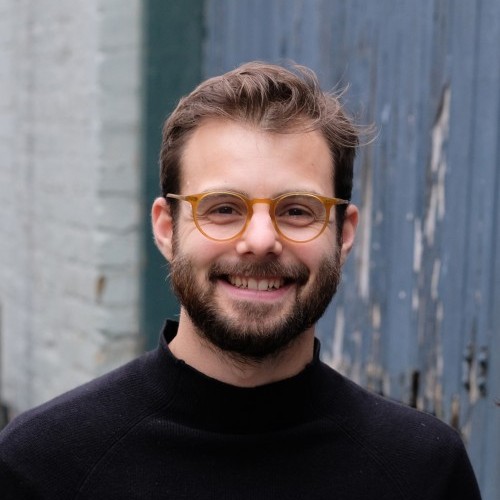
Grant Waters

Eleanor Ratcliffe
Make My City Thrive – an impact assessment framework for measuring the wellbeing benefits of urban greening
Abstract Copy
The role of green infrastructure in towns and cities is growing rapidly, with benefits ranging from climate mitigation, flood prevention, air quality and noise reduction, to improving biodiversity, economic value, human health and wellbeing. Charities, non-governmental organisations, landscape architects and developers are increasingly implementing these initiatives and typically monitor impacts in terms of objective measures, such as environmental quality, number of people engaged, and money spent.But what do we understand about the effect of in-situ urban green interventions on more subjective outcomes, such as psychological wellbeing? How could these subjective aspects of social and environmental impact be monitored, evaluated and optimised, helping to build a wealth of evidence on the in-situ benefits of designs?
Make My City Thrive is a mixed-mode impact assessment framework designed to capture and communicate the effectiveness of urban landscape designs and how they affect our access to nature, environmental quality and wellbeing. It comprises seven themes: landscape; habitat; environmental quality; access to nature; use and behaviour; inclusivity; and health and wellbeing, each with sub-metrics and methodologies that use secondary data and GIS analysis, observational and environmental surveys, and primary psychological surveys and innovative micro-journaling methods.
The framework is being developed by Tranquil City, in partnership with the University of Surrey’s Environmental Psychology Research Group, and is built to provide a consistent yet flexible approach to impact assessment that considers equity and engagement of the community, and enables its use by both resource-limited community garden groups and large-scale housing developers.
In this talk, the framework will be outlined, showcasing examples of the tools, methods and outputs developed with several non-academic partners within urban case studies. Reflections will cover how developing the framework in a live environment, in two locations in Inner and Central London, has allowed the team to gain insight into what is needed to effectively engage, involve and communicate with stakeholders and the local community in order to showcase the wellbeing impact of their interventions to funders.
Learning Objectives
- Practitioner assessment of the impacts of urban green infrastructure interventions on subjective wellbeing
- Mixed-mode data gathering and analysis methods to support inclusive, holistic assessment approaches
- To enable in-situ assessment of urban greening interventions to support design and planning
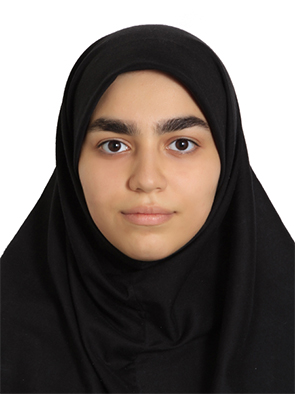
Sophia Rostami Nia
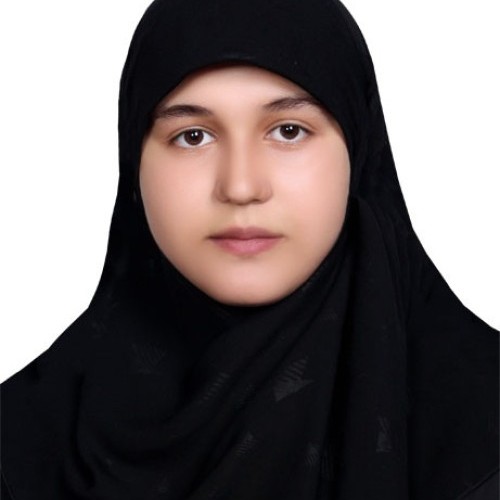
Hakimeh Shams
The impact of neighborhood green spaces on alleviating urban loneliness
Abstract Copy
This study suggests that urban environments should be designed to be inclusive and welcoming for all age groups. This includes creating spaces that encourage social interactions and community participation among the elderly, thereby enhancing their quality of life.Mental health can be improved through social factors as well as urban layouts and designs. Based on the analyses and findings aligned with the main objective of this research, the following recommendations are proposed:
• Strengthening neighbourhood cohesion and creating inclusive spaces that not only meet the needs of the age group examined in this study but also respond to the needs of future generations through sustainable designs. Ultimately, this can contribute to reducing mental disorders as a precursor to social crimes, corruption, addiction, and other influential issues.
• Planning should aim to increase dynamic environments with flexibility and permeability in psychological dimensions, and provide the necessary per capita green space. Additionally, it is important to note that planning to increase green spaces not only has positive psychological effects but also helps reduce noise, visual, and ecological pollution.
Learning Objectives
- Strategic planning for psychologically responsive urban environmentsprioritizing flexibility, permeability, and mandated green space allocation per capita alongside initiatives to reinforce neighborhood cohesion through universally accessible spaces,
- , ultimately advancing quality of life via sustainable development frameworks
- Increase dynamic environment
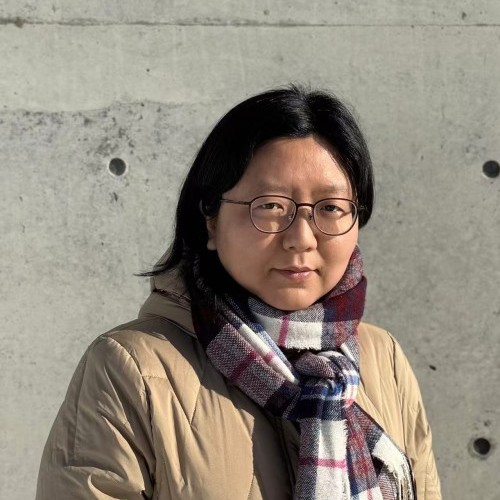
Yilin Song

Aize Han
Spatial accessibility of multi-campus hospitals: A case study of Tianjin, China
Abstract Copy
China adopts a hierarchical medical system, which classifies hospitals into primary, secondary, and tertiary tiers. Tertiary Grade A hospitals, representing the highest tier of medical facilities, account for less than 10 per cent of all hospitals. With the growing demand for high-quality medical resources, developing the new campuses of the tertiary Grade A hospitals are perceived as an effective way to increase and balance medical resources. This study aims to explore the spatial accessibility of multi-campus hospitals and to test whether it serves the above purpose.We chose Tianjin, which is one of the four municipal cities in China and possesses relatively abundant medical resources, as the case study. There are 11 multi-campus hospitals, including 27 campuses in total. Utilising multi-source datasets (road network data from OpenStreetMap and geolocation data from Guihuayun) combined with the dataset "National-scale 1-km maps of hospital travel time and hospital accessibility in China", the spatial accessibility variables of each campus were calculated using ArcGIS.
The results illustrated that:
1. The new campuses were mainly located in the central areas before 2020, then moved to the outskirts before returning to the centre in 2023. Five were located in areas with the inadequate medical resources, five in relatively adequate areas, and six in adequate areas among the 16 new campuses.
2. Distances between the new and original campuses for each hospital were classified as three types: long distance (>25 km), medium (10-25 km), and short (<10 km). Five hospitals are of the long distance type, with significant differences in the accessibility between the campuses. Their branch campuses may supplement medical resources. Two hospitals are of the medium distance type, with relatively sufficient accessibility. It's assumed that the two campuses can complement each other to meet residents' medical needs. Four hospitals are of the short type, with sufficient accessibility. Their service areas overlap within a 30-minute travel time, which may lead to an over-concentration of medical resources.
This study analysed the spatial accessibility differences among multi-campus hospitals and classified the development models preliminarily. In the future, it will combine with the surrounding population need and hospital scale, type, and operational status to provide empirical experience for guiding the multi-campus hospital construction.
Learning Objectives
- Know China's tertiary medical system and multi-campus hospital construction
- Establish the correlation between the spatial distribution and accessibility of multi-campus hospitals
- Learn about the different development models of multi-campus hospitals

Annamae Muldowney
From SimCity Hospital to real-world care: Reimagining simulation for inclusive healthcare environments using Utility AI
Abstract Copy
This paper argues that AI-driven healthcare simulation must evolve to reflect a broader spectrum of human diversity in order to remain both clinically rigorous and socially responsive. Drawing inspiration from game design methodologies, particularly the behavioural logic systems used in the game The Sims, it proposes the development of AI personas with a range of physical, sensory, cognitive, and emotional needs that can be integrated into spatial simulations to capture the nuanced ways people interact with healthcare environments. The central hypothesis is that AI simulations have the capacity to account for disability and behavioural variability, and that doing so can produce more accurate insights, enhancing both infection control strategies and the quality of care experiences.This position builds on and challenges the current trajectory of simulation in healthcare, such as Autodesk’s Covid-19 research, which used agent-based modelling to visualise people-pathogen interactions. While these tools have demonstrated value in reducing transmission and optimising layout, they typically rely on assumptions of normative behaviour and ability. Such assumptions exclude the lived experiences of millions, overlooking how access needs alter movement and interaction, both of which are directly relevant to infection dynamics.
In this theoretical framework, Utility AI, adapted from video game environments, is introduced to generate decision-making agents with context-sensitive motivations. For example, a wheelchair user may prioritise direct routes to avoid exhaustion, which in turn could delay or limit access to hygiene facilities, while a neurodivergent person might avoid overstimulating areas potentially bypassing check-in points, or sanitation stations. These altered behavioural patterns are not only clinically relevant to infection transmission pathways but also reveal where design choices may unintentionally exclude or endanger certain users. By capturing such variations, the simulations can expose overlooked spatial, procedural, and perceptual barriers with real implications for public health and equitable care.
This reframing has two key contributions: first, it advances simulation as not only a technical tool but a reflective one, capable of surfacing equity gaps and rebalancing design priorities. Second, it affirms that inclusive modelling is not merely an ethical add-on but essential for clinically accurate healthcare planning.
To exclude disability and behavioural diversity from simulation under the guise of complexity or neutrality is itself a design flaw. This paper advocates for interdisciplinary collaboration among architects, AI developers, clinicians, and disabled communities to ensure that simulation technologies lead to environments that are not only safe and inclusive but also accurate and reflective of real-world diversity.
Learning Objectives
- Understand the limitations of current AI-driven healthcare simulations in representing diverse user behaviours, particularly those related to disability and neurodiversity.
- Explore the application of game design methodologies, such as Utility AI from The Sims, to develop context-sensitive personas that enhance spatial and behavioural modelling in healthcare environments.
- Evaluate how inclusive simulation practices can improve clinical accuracy, infection control, and equity in healthcare design by identifying overlooked spatial and procedural barriers.
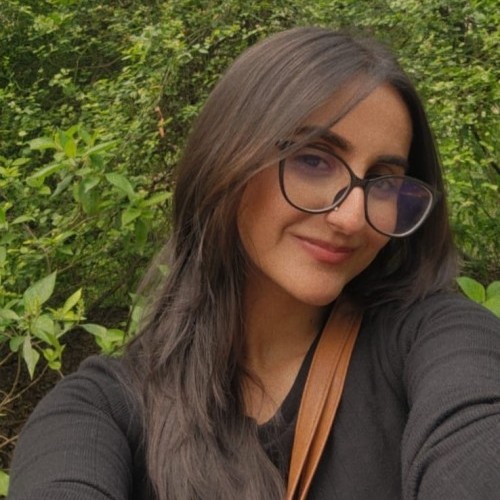
Hadiya J. Khuwaja

Abdul Waheed
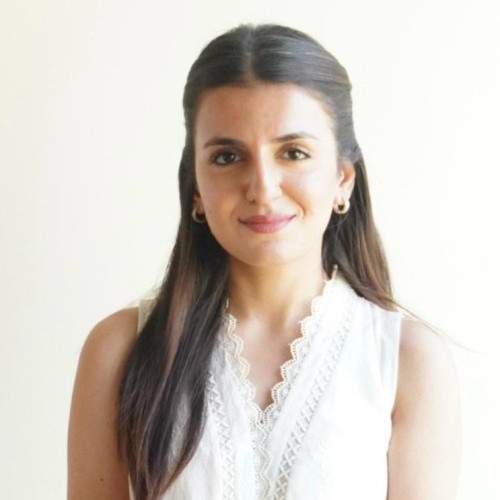
Swaleha J. Khuwaja
Urban parks as mental health sanctuaries: Insights from a mixed-methods study in Islamabad
Abstract Copy
As urbanisation intensifies across the Global South, equitable access to green spaces is becoming increasingly critical for promoting mental health and psychological resilience. Yet despite growing global recognition of the restorative benefits of urban nature, empirical research on this relationship remains limited in South Asian cities, particularly in low- and middle-income contexts where urban density, socioeconomic disparities, and infrastructural neglect often exacerbate mental distress. This study addresses that research gap by exploring the association between urban park usage and mental wellbeing in Islamabad, Pakistan, a rapidly urbanising capital that has comparatively abundant public green spaces.A cross-sectional mixed-methods design was employed. A total of 354 residents completed a bilingual (English/Urdu) questionnaire, distributed both online and in-person through convenience and snowball sampling. Psychological distress and positive mental wellbeing were assessed using two validated tools: the 5-item General Health Questionnaire (GHQ-5) and the 7-item Warwick-Edinburgh Mental Well-Being Scale (WEMWBS-7). Descriptive statistics and regression models were used to analyse associations between mental health outcomes and predictors, including age, gender, park visitation frequency, and perceived accessibility. Thematic analysis of open-ended responses captured residents’ lived experiences, motivations, and perceived barriers to park use.
Findings revealed that older adults, frequent park users, and individuals reporting greater perceived accessibility showed significantly higher wellbeing and lower psychological distress (p < 0.01). Thematic analysis highlighted four key benefits of park engagement: emotional restoration (e.g., relief from stress and anxiety); physical activity; social connection; and creative reflection. However, access to these benefits was not equitably distributed. Women and residents from underserved communities reported disproportionately greater barriers, including safety concerns, poor infrastructure, time constraints, and a lack of gender-sensitive design features.
These findings highlight the essential role of inclusive urban green spaces in promoting mental health in rapidly growing cities. For parks to fulfil their health-promoting potential, urban design must address barriers to access through improved safety, infrastructure, and outreach, particularly for women and low-income groups. By embedding mental health considerations into public space planning, cities can foster greater social cohesion, resilience, and health equity, offering replicable strategies for the urbanising Global South.
Learning Objectives
- 1. To examine the relationship between urban park usage and mental well-being among residents of Islamabad using validated psychological assessment tools.
- 2. To identify key demographic and environmental predictors, such as age, gender, frequency of visitation, and perceived accessibility that influence psychological distress and positive mental health outcomes in park users.
- 3. To explore residents’ lived experiences, motivations, and barriers related to urban park access and use, with a focus on how issues such as safety, infrastructure, and gender-sensitive design impact equitable mental health benefits.

Katharina Nieberler-Walker
Therapeutic hospital gardens – guidelines to transition to healthy spaces
Abstract Copy
This paper introduces the Therapeutic Hospital Garden Guidelines (THGG) for healthcare professionals to integrate purposefully designed therapeutic gardens into hospital environments. The THGG are based on Guidelines for each of the three sectors fundamental to making therapeutic hospital gardens (THG) a reality: healthcare designers, healthcare decision-makers, and clinical practitioners.These THGG are the ultimate guide for all healthcare professionals globally. They inform architects, landscape architects, and health planners (the healthcare designers), hospital CEOs, government executives and consultants, (the healthcare decision-makers), and healthcare delivery, medical and hospital environment practitioners (the clinical practitioners) to each design, plan and budget for, and then establish THG.
These guidelines direct architects, landscape architects and health planners in learning about operational and clinical requirements, and thereby design gardens that offer respite and therapy for the needs of hospital users, including patients, their families, visitors and staff. The guidelines for healthcare decision-makers guide hospital CEOs, government executives and consultants on how to make informed decisions about the benefits and value of THG, based on the health and financial value of planning for and including gardens in hospitals that are therapeutic. And for clinical practitioners, they can guide healthcare delivery, medical and hospital environment practitioners who want to include THG in their treatment of patients, to adequately plan and design garden spaces that have spatial and environmental qualities for relaxation and cognitive, occupational and behavioural therapy.
When these three sectors – healthcare design, healthcare decision-making and clinical health – each contribute their expertise and work together, then THG can be designed for, planned and budgeted for, and then established successfully in every hospital. Embedding THG into healthcare supports holistic patient care, staff and visitor wellbeing, and positions THG as a mechanism for transitioning to healthier hospitals.
Learning Objectives
- Conference participants will be introduced to the Therapeutic Hospital Garden Guidelines (THGG) and the recently established therapeutic hospital garden definition.
- Conference participants will be provided with key resources, including sources including best practice examples and references to deepen their understanding of therapeutic hospital gardens (THG).
- Conference participants will be able to able to appreciate the parallels between THG as vital health infrastructure for hospitals and green spaces for cities to shape the urban realm to enable healthier lives and choices.

Georgina Blix
Design for wellbeing: How we design for and measure wellbeing in the built environment
Abstract Copy
This global research report, completed in 2024, explores the role of design for wellbeing; in particular, how we measure wellbeing in housing. The research tour included project visits and interviews across ten cities in New Zealand, America, Canada, the UK and Austria, along with a detailed literature review to provide a comprehensive look at how we can consider the science of wellbeing with measurable impact.Disconnection, loneliness and poor mental health outcomes are recognised government priorities across the world. Housing is a critical foundation for quality of life that influences many social determinants for mental health, including the availability of jobs; health and education services; and access to clean air, green space and recreational facilities. How we live can also improve mental health outcomes through communities, and neighbourhoods connect people, support civic pride, and build social resilience. While the built form alone is not the only answer, design choices made early in major housing projects can substantially strengthen protective factors, prevent mental ill health, help with recovery, and build sustainable neighbourhoods.
Wellbeing is a complex construct, experienced differently by every person and community. This research aims to provide a practical overview of wellbeing science, best practice case studies, and outline the design processes that can be applied in any project or community. It includes not only theoretical wellbeing frameworks but also real world built and research projects at the scale of the building, place or community.
It has been written to help developers, planners, councils, architects, researchers or members of the public consider the science of wellbeing and avoid ‘wellbeing washing’. With strong focus on wellbeing measures and policy, we hope to inspire government to apply a research-led and data-informed process to the delivery of social and affordable housing. More broadly, we hope it inspires everyone involved in the built environment to consider their role in improving community wellbeing.
This research was sponsored by the Byera Hadley Travelling Scholarship, awarded by the NSW Architects Registration Board and Perpetual in 2023.
Learning Objectives
- To understand the correlation between housing and mental health outcomes.
- To learn practical ways to design housing and our communities to support wellbeing based on international case studies..
- To understand global examples of how we can measure wellbeing in the built environment.

Andrew Jenkins
Co-creating urban food futures through grassroot community engagement
Abstract Copy
'Think it – Make it – Grow it' is a research project that aims to bring community members together to co-create low-tech, low-cost, and accessible urban food projects. The underlying research explores whether community involvement at the very early stages can lead to the improved legacy of urban growing projects, by enabling stakeholders to share ideas and design together through fun and playful workshops. The goal of the project is to bring people together to grow food in a structure that they designed and helped create.In 2024, a series of co-creation sessions were held in Oldham, Clayton, and Blackburn. Using a design sprint methodology, each community was invited to join two co-creation sessions. During these sessions, community members were brought together to explore ideas about urban food production and share their thoughts on how this concept could be integrated into their communities. This involved design tasks interspersed with talks from invited experts. The process was enriched through open discussions and voting to ensure that everyone’s ideas were reflected in the final designs. Later, the final outcomes were fabricated and installed on-site.
The projects are still in their infancy but activities are already starting to take place in these communities. As part of an ongoing partnership, the University of Salford will continue to support these projects for as long as they need, to help ensure their legacy and to use these projects as a catalyst to develop new community food projects across the North West of England.
Learning Objectives
- Everyone is a designer (they just need the opportunity to discover it)
- Co-creation helps to embed ownership and legacy
- We become better designers by inviting others to participate
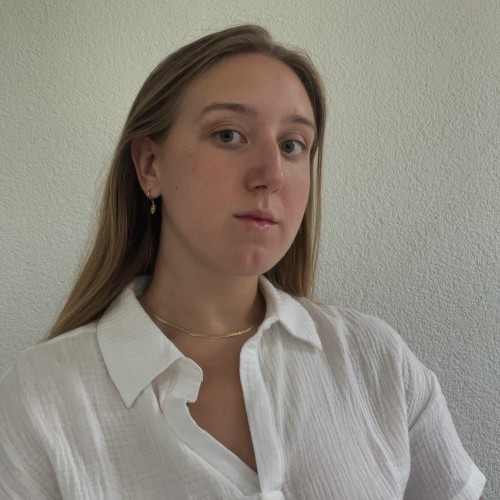
Maya Ljubojevic
Bumping places: How to help a city thrive through facilitating connection
Abstract Copy
We are facing a loneliness epidemic in our cities, and we must put forward accessible, intuitive, and actionable solutions.Over the past three years, I have utilised photovoice, interviews, focus groups, and participatory geographic information systems to learn where and why people feel most and least connected in cities. Access and accessibility are recurring themes of my research. We can see social connection is felt more strongly in contexts where people can access others, regardless of how superficial or fleeting an encounter can be. We must recognise access as a fundamental enabler of social connection. An actionable point for this could be strengthening access points through community groups, public spaces, education sessions, and local initiatives. Further, addressing barriers to participation, particularly for marginalised and vulnerable populations, would enable facilitation of connection both within and across various demographics, fostering a sense of belonging, community and integration.
A solution that my research proposes is the idea of ‘bumping places’ – places that facilitate impromptu, convivial and natural interactions, which help mitigate experiences of loneliness and poor outcomes associated with this.
Learning Objectives

Luke Engleback
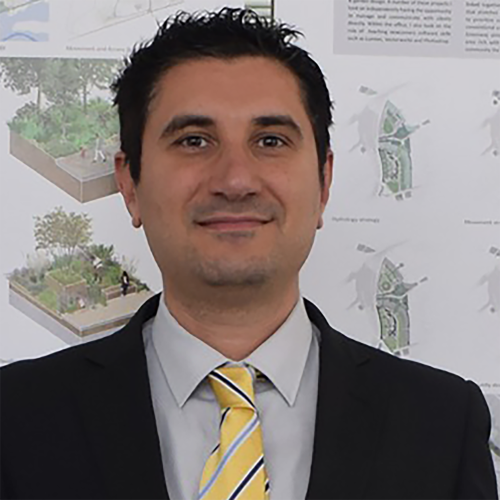
Alessio Russo
From microbiome to mental health: Integrating ecourbanism, salutogenic design, and ecosystem services for resilient cities
Abstract Copy
Cities drive economic growth, conferring many advantages on citizens, but the significant adverse effects to human and environmental health should be considered together. Long-term illness blights lives, affects human productivity, and raises healthcare service costs. Salutogenic design can cut healthcare costs and improve resilience of ecosystem services in cities. Requirements to improve biodiversity should be linked to these issues. A requirement for environmental net gain would be an enabler for development and long-term economic growth.Non-communicable diseases (NCDs), the prime cause of death and disability, fall into five main categories: cardiovascular diseases; diabetes; chronic respiratory diseases; cancers; and mental health conditions. Recent research shows mental disorders co-exist and share risk factors with other NCDs. By 2019, around 12 per cent of the global population suffered from mental disorders, but there has been a significant deterioration since Covid-19. The greatest burden is Major Depressive Disorder (MDD), affecting quality of life, cognition, employment status, and productivity.
Humanity co-evolved with microbes into metaorganisims, comprising host cells and an ecosystem of microbial organisms. The diversity of the human microbiome, in and on the body, is reduced by urban living. Lower microbiome diversity is associated with obesity, inflammatory bowel diseases and metabolic disorders, and depression and physical inflammation are linked. Ecourbanism embraces whole systems thinking instead of addressing issues in separate silos, to seek common ground between issues while limiting tradeoffs, and the environment/health nexus is a useful point on which to capitalise.
Planning a foundation for better mental health includes: 1) pro-social design, since the loneliness epidemic is a precursor of some mental health issues; 2) pro-nature regenerative living systems design to improve green/blue/grey infrastructure and urban biome, such as urban heating, flood mitigation, biodiversity gain, carbon emissions reduction, and health creation. A variety of measures may include rain gardens; building integrated vegetation (roofs/walls); water; a variety of vegetation in streets and small local spaces; and connections to larger conserved or re-wilded public spaces.
The global economic burden for all mental health conditions is estimated to be US$6 trillion by 2030. Sustainable Development Goal SDG3 Health & Wellbeing is central to delivering the other 16 SDGs by 2030, and improving mental health and wellbeing is seen as key to reducing the global burden of NCDs. This paper explores how salutogenic urban design can be integrated with broader ecosystem service improvements through ecourbanism, offering a roadmap for healthier, more resilient cities.
Learning Objectives
- Understand the interconnected impact of urban design, biodiversity, and mental and physical health, particularly in relation to non-communicable diseases (NCDs) and microbiome diversity.
- valuate the principles of Salutogenic design and Ecourbanism as integrated strategies to enhance ecosystem services, reduce healthcare costs, and improve urban resilience and well-being.
- Analyze how urban planning interventions, such as green/blue infrastructure and pro-social, regenerative design, can support Sustainable Development Goal 3 (Health & Wellbeing) and contribute to long-term economic and environmental sustainability.

Heather Macey
Homestead Hafod Farm: A therapeutic model for community-based supported housing for those with a diagnosis of psychosis
Abstract Copy
Homestead is a new model for holistic, therapeutic supported housing for people with a diagnosis of psychosis. Developed by architects and clinicians – including Heather Macey and Tim Makower of Makower Architects and clinical psychologist Dr Andrew Howe of the Maudsley NHS Foundation Trust – the project is shaped by both professional expertise and lived experience of mental healthcare environments.Founded as a community interest company (CIC), Homestead reimagines supported housing through three core pillars: creative engagement; working with nature; and community participation. These elements are embedded in both the physical design and daily rhythms of Homestead life, offering a dignified alternative to traditional institutional care.
Our first pilot, Homestead Hafod Farm in North Wales, transforms a three-hectare rural site into an integrated community combining supported accommodation, therapy gardens, shared kitchens, art spaces, and social enterprise. Up to 15 residents and 25 live-in staff, makers, and guests live and work together – forming a community rather than a treatment facility.
Homestead is grounded in the belief that community-based care offers more sustainable and empowering outcomes than long-term inpatient treatment. The project challenges the prevailing model by prioritising autonomy, daily routine, social connection, and therapeutic choice.
Creative arts therapies and nature-based interventions are central – not as add-ons but as essential to health and recovery. Residents engage in local craft and cultural practices, horticulture, animal care, and creative expression tailored to local identity and needs. These interventions support emotional wellbeing, social functioning, and independence – all critical for reducing emergency interventions and hospitalisation. Homestead also places strong emphasis on community integration. Through partnerships with local makers, artists, and organisations, each site is shaped by its setting. Residents are not only supported but are included, visible, and active participants in local life.
This model seeks to break the cycle of crisis and institutionalisation by creating therapeutic spaces that feel like home, and are grounded in co-production, dignity and trust. Homestead is designed to be scalable and nationally relevant – a prototype for systemic change in the way we approach care, place and psychosis.
Learning Objectives
- Random Control Trial Process and other research based learnings
- Knowledge Sharing
- Critically assess the challenges and opportunities of embedding research, evaluation, and health economics into the early stages of design-led mental health projects.
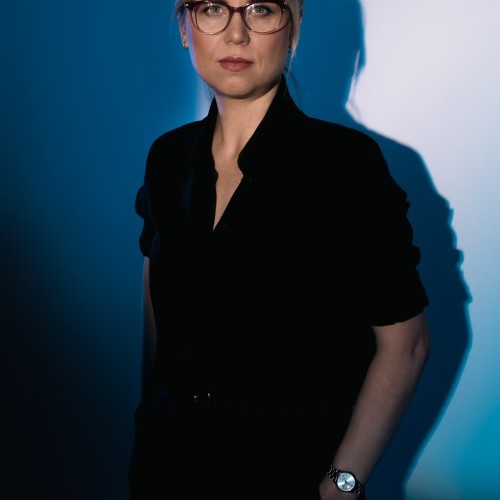
Marta Czachorowska
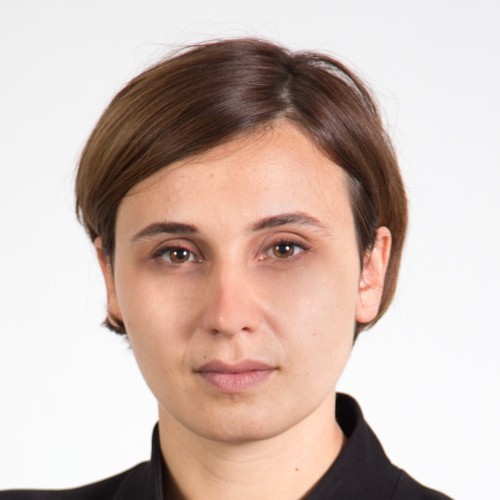
Katarzyna Lewoc

Anna Watkowska
Past models, future cities: Reimagining post-industrial urban quarters for healthy ageing
Abstract Copy
In 19th-century industrial cities like Lodz, hospitals were built as part of an emerging capitalist system to care for the health of factory workers. These institutions were not isolated but were part of a broader urban ecosystem alongside workers’ housing, daycare shelters, outpatient clinics, and the factories themselves. Factories did not only produce goods – they shaped entire micro-cities, where living, working, healing, and social life were deeply intertwined.Today, in a post-industrial context, technological and environmental shifts have left behind a scattered urban legacy – hospitals, green spaces, housing blocks, and former production halls are now divided between various owners: the city, the hospital, and private developers.
Our project attempts to “stitch” these fragments back into a coherent urban fabric, integrating residential, healthcare, and social functions. Within the grounds of a former textile factory, we are planning senior assisted living (approximately 250 units), rehabilitation facilities, and a municipal senior health centre – all in direct proximity to the still-functioning Jonscher Hospital. This case study explores a large-scale urban area designed to support long, healthy lives. The historic factory halls will house senior living apartments, with the ground floors hosting shared community spaces: a gym; cafe; spa zone; communal kitchen; workshop rooms; a small auditorium; and spaces for intergenerational activities. Nearby family housing will be complemented by shared gardens, green courtyards, playgrounds, and a small river. The hospital, located on a hill overlooking the site, is once again becoming an integral part of the community.
The core idea is to learn from the planning logic of industrial cities – but with contemporary knowledge, tools and values. We build on the heritage and spatial DNA of the city, restoring memory, identity and social connection. Instead of designing a new “hospital town” from scratch, we re-activate an existing, post-industrial ecosystem, where the hospital is once again a central piece of community life. This time, however, it is also surrounded by loft-style housing for seniors – young in spirit, living in spaces once designed for machines, now reimagined for people.
Learning Objectives
- Understand how historical industrial urban patterns can inform contemporary models of integrated care and community development.
- Explore design strategies for re-integrating hospitals into the everyday life of local communities.
- Examine collaborative planning approaches that bridge public, private, and civic sectors in the adaptive reuse of urban heritage.

Alanis Burgess
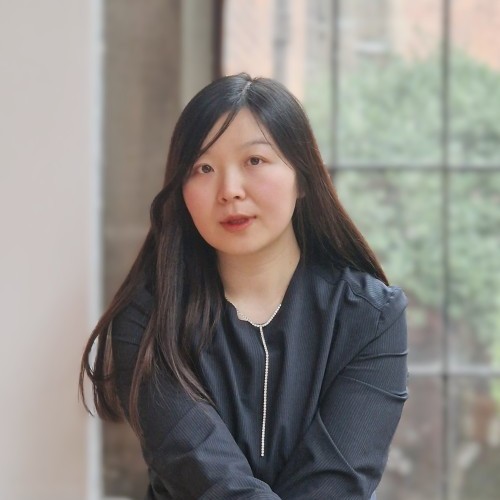
Jiayi Jin
the feminiNE1: A case study analysis of gender inclusivity in Newcastle’s planning policy and practice
Abstract Copy
Despite decades of evidence documenting the exclusion and marginalisation of women in urban environments, progress towards more inclusive, gender-equitable planning remains slow. This paper investigates the relationship between gender representation in planning authorities and the inclusivity of urban policies, using Newcastle upon Tyne, a rare case of a female-dominated city planning department, as a critical case study. This work explores how gender identity shapes urban experience and how structural planning processes either enable or inhibit inclusive outcomes. The research aims to generate actionable policy guidance for gender mainstreaming in the context of Newcastle’s forthcoming Local Plan 2045.This research was conducted from a transdisciplinary approach, drawing from gender theory, sociology, political science, and urban studies. A three-phase methodology was employed, beginning with a thorough literature review and extensive analysis of current local policy and design codes. This initial investigation informed the structure of a participatory gender walk and workshop attended by academics, architects and planning professionals in Newcastle. These findings were disseminated and further interrogated through expert interviews conducted with local stakeholders, including senior planning professionals from Newcastle City Council and a prominent architect. Data from each phase was iteratively interpreted into a gender-mainstreaming policy, incorporating place specificity while also ensuring transferability beyond Newcastle and the North East.
Findings suggest that despite demographic shifts in Newcastle’s planning leadership creating space for new perspectives, structural planning processes continue to reproduce gendered biases. The participatory research methods employed in the gender walk and workshop highlighted persistent barriers for women in public spaces, including issues of safety, mobility and accessibility. Subsequent expert interviews underscored a disconnect between individual values and institutional practice, where progressive intentions are often constrained by rigid planning systems and policy legacies. However, the research also identified clear opportunities for intervention, particularly in embedding gender mainstreaming principles early in the policy design process.
The research concludes that while gender diversity within planning leadership is an important and necessary step towards progress, it is insufficient without accompanying structural reform. The study presents a context-sensitive gender mainstreaming framework for Newcastle with elements of broader applicability across the UK, contributing both practical guidance for policymakers and theoretical insight for the regeneration of our urban realm. By centring lived experience and feminist urban knowledge, the research advocates for embedding gender equity in planning practice, supporting healthier, more inclusive urban environments for all.
Learning Objectives
- Understand how gender inclusivity is addressed within the strategic policies of Newcastle’s Local Plan.
- Examine how gender identity influences urban experiences in Newcastle and evaluate the potential of gender mainstreaming to improve inclusivity.
- Analyse the impact of female representation in Newcastle’s planning leadership on the gender inclusivity of the urban environment.
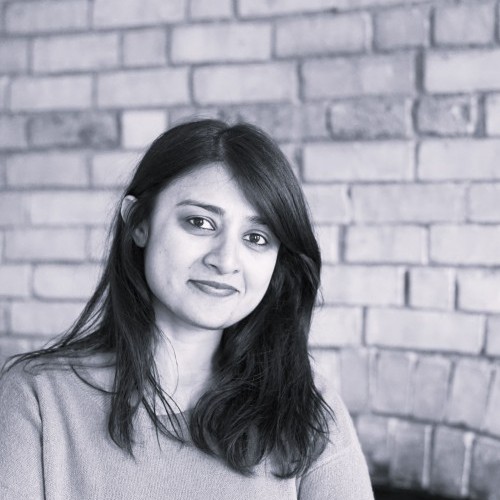
Chandkiran Nath
Evidence-based and engagement-led asset optimisation strategies for healthy, connected communities
Abstract Copy
Healthy cities are a function of interconnected systems where governance, services, infrastructure, and communities must align to achieve sustainable wellbeing. A well-connected network with continuous feedback loops supports evidence-based forward-thinking decision-making , well-informed communities, as well as generating social capital, where trust and confidence help collective action.This paper presents three place-based projects that exemplify how evidence-based and engagement-led asset optimisation strategies can support local authorities in managing challenges and fostering community resilience. The three projects – 1) the Croydon Asset Mapping Tool; 2) Newhaven Town Council’s Estate Strategy; and 3) public engagement support for East Lothian Council’s placemaking strategy – demonstrate scalable methods to identify and address spatial, financial, and service provision gaps in public infrastructure.
These projects respond to common urban challenges that councils face in planning space and service provisions: financial constraints; underperforming assets; shifting demographics; and the impact of strained relations between local authorities and the communities they serve. Through a mixed-methods approach – combining contextual desktop research, demographic analysis, and inclusive public engagement (e.g., workshops, interviews, town halls) – each project aimed to create meaningful feedback loops that inform both placemaking decisions and community empowerment. These also look at how communities and stakeholder engagements conducted in a holistic way can influence the relationships between the governing bodies and communities – helping to identify the true needs and priorities of the community and enabling governing bodies to provide support in a more targeted, efficient, and effective manner.
In Croydon, a digital asset mapping toolkit was co-developed to visualise service and spatial gaps across the borough, layered with demographic and contextual datasets. This helped the council prioritise investment and identify areas for immediate and future intervention. In Newhaven, engagement and scenario planning enabled the development of a strategic estate plan aligned with funding constraints, building conditions, and community needs. In East Lothian, early-stage engagement helped uncover reasons for asset underperformance, including communication breakdowns and under-leveraged community interest in asset ownership and management. A key insight was the need for intermediary roles, such as community liaison officers, to rebuild trust, co-ordinate volunteer networks, and unlock collective action.
Findings across all three projects highlight that asset optimisation is not only a technical and financial exercise – it is, most importantly, a social process. When approached holistically, it has the potential to promote social cohesion, accountability and build resilient urban systems, ensuring efficient long-term investments serving the evolving needs or changing populations.
Learning Objectives
- Feedback loops in placemaking projects empower communities and support collective action that directly influences community resilience
- The relationship between local authorities and communities they serve is critical to enabling or inhibiting efforts made by the council in providing services and infrastructure. Stakeholder confidence and community trust and help develop
- Evidence-based early engagements in a placemaking project enable governing bodies to provide support and make investments in a more targeted, efficient, and effective manner that helps the communities and authorities in the long term.
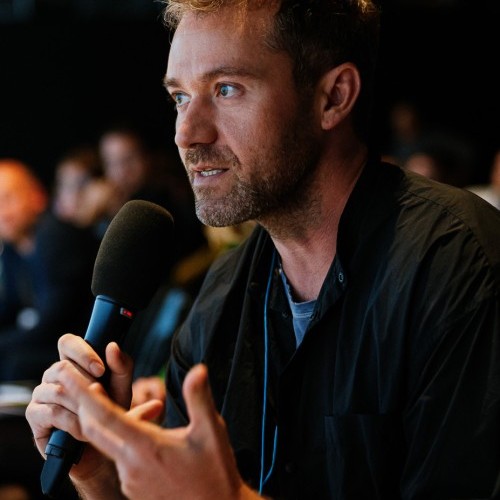
Simon Battisti
The first causal impact evaluation of a child-friendly cities Initiative: The Tirana School Streets Study
Abstract Copy
Around the world, cities are reimagining how the built environment can support children’s health. A growing movement of child-friendly urban design is transforming car-dominated streets near schools into spaces that support walking, play and community connection. But while interest in these “school streets” is rising, causal evidence of their impact on health and wellbeing remains virtually non-existent.This panel presents the research design and early results from the first causal impact evaluation of a school streets intervention of the Tirana School Streets programme. Since 2020, the Municipality of Tirana and the Albanian NGO Qendra Marrëdhënie have piloted school street transformations at 12 public schools. These projects reclaim street space for pedestrians by removing car parking, widening sidewalks, lowering speed limits, and adding greenery, seating, and shade. The result: calmer, more social environments where children arrive at school more safely and caregivers linger and connect.
Anecdotal and observational data suggest improvements in traffic safety, pollution, and social interaction – but until now, no rigorous research has confirmed these effects. In 2025-2026, Qendra Marrëdhënie will partner with Epoka University and NYU’s Global TIES for Children to evaluate the programme’s expansion to 38 new school sites through a quasi-experimental design.
Panellists will share early findings from a 2025 pilot study, present the evaluation’s theory of change, and describe the research design. The study will examine key public health outcomes: commuting behaviour (active versus passive transport); caregiver and child stress and mood at drop-off; perceptions of safety in the school’s surrounding environment; and teachers’ reports on student engagement.
This session will explore how changes to the urban environment shape children’s daily experiences and mental wellbeing, how to measure these effects rigorously, and what cities and policymakers need to know to support healthier public space. It is an invitation to centre childhood in the way we design streets – and to ground this approach in evidence.
Learning Objectives
- Understand the health and psychosocial rationale behind child-friendly street design near schools.
- Learn how to design and implement a causal impact evaluation of urban design interventions in real-world settings.
- Identify key indicators and methods for measuring the public health impacts of changes to the built environment.
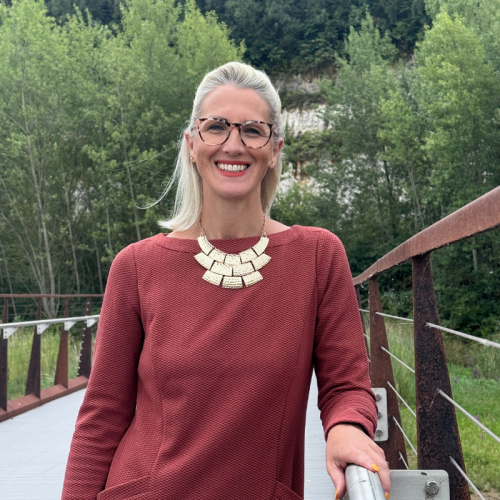
Mary Rouse
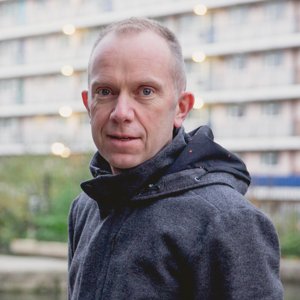
Peter Mandeno

Weston Baxter
Making connection visible: A theory-of-change approach to wellbeing in urban development
Abstract Copy
Background and aims: This project explores how social connectedness can be designed and embedded as a core element of health and wellbeing in new communities, using Ebbsfleet Garden City – part of the NHS Healthy New Towns programme – as a testbed. As urban developments scale rapidly, the challenge is not only the delivery of physical infrastructure but also the cultivation of social infrastructure that underpins long-term community resilience. The primary aim was to co-create a practical and scalable theory of change – a framework that aligns existing activity, identifies gaps, communicates opportunities for involvement, and provides direction for community and institutional stakeholders alike.Methods: We undertook a seven-month, iterative collaboration between Ebbsfleet Development Corporation (EDC), local residents, and experts in design for human connection from Imperial College London. The work unfolded in two phases: 1) development of a theory of change to clarify how social connection drives community health and belonging; and 2) co-design and refinement of seven illustrative interventions that demonstrate how this framework can be operationalised. Methods included community workshops, immersive neighbourhood visits, stakeholder interviews, and hands-on co-design sessions.
Findings: The resulting theory of change provides a coherent and flexible framework for guiding action on community connectedness. It has already begun to serve multiple functions: making sense of existing initiatives; articulating shared goals; supporting legacy planning by EDC; and empowering the Community Board to sustain momentum. Built on behavioural insights and design principles, the framework translates abstract aims like “belonging” and “participation” into actionable components. Seven intervention ideas – including the Ebbsfleet Market, Chalk Festival, Community Art Trail, and Elements of Connection – demonstrate how the framework can be applied in diverse and locally tailored ways. While individually modest, these interventions gain impact through their strategic alignment with the theory of change.
Conclusion: This paper presents a replicable approach to embedding health-promoting social infrastructure in new communities. The theory of change is the project's key innovation, providing a structured yet adaptable way to design, evaluate and grow social connectedness over time. Ebbsfleet’s experience highlights the power of co-production and behavioural design to shape community-led, inclusive urban futures. It offers both a strategic lens and practical tools for other developments aiming to turn connection into a foundation for health and resilience.
Learning Objectives
- Understand how a Theory of Change can be co-developed and used as a strategic framework to design, align, and evaluate social infrastructure initiatives in new urban communities.
- Explore the role of behavioural science and participatory design in translating abstract wellbeing goals—such as belonging and connectedness—into actionable and locally meaningful interventions.
- Gain insight into practical, scalable methods for embedding social connectedness in urban planning, with lessons from Ebbsfleet Garden City that are transferable to other health-focused developments.

Barbara Benesh
Designing the Invisible: How built environment strategy shapes community health and policy outcomes
Abstract Copy
Background: The built environment is often treated as a backdrop to health outcomes rather than a driver of them. Yet spatial decisions – many made long before the first brick is laid – profoundly shape community health, equity, and resilience. These invisible levers include zoning, executive planning, capital investment, and design strategy – domains that remain siloed from public health policy despite their shared impact.Purpose: This paper introduces a practice-based framework developed through real-world consulting engagements across the US and UK. It demonstrates how embedding design strategy at the executive level – from C-suite decision-making to municipal governance – unlocks healthier, more equitable outcomes across communities. The aim is to bring visibility to the invisible drivers of health: space, systems, and the stories we build into them.
Methods: This paper introduces a practice-based framework developed through strategic advisory work and peer-to-peer research across the US and UK. Through emerging engagements with mission-aligned non-profits and city leaders, the author synthesizes early-stage spatial strategies, stakeholder activation tools, and executive-level planning models that frame design as a driver of health. The work also incorporates reflections from the Rice University symposium on 'Designing for Health Equity using Digital Tools'.
Results: The proposed approach has resonated strongly in early-stage conversations with organisations seeking to embed health equity upstream, prior to architectural design. Pilot dialogues have revealed a critical opportunity: when C-suite leaders and municipal stakeholders are equipped with spatial strategy tools early, they can reimagine their assets through the lens of behavioural health, walkability, and community equity. These insights form the foundation for future case development, offering a roadmap for how design strategy can shift not just buildings, but belief systems.
Implications: Design must be repositioned not as a downstream service but as a strategic input at the policy, investment, and planning level. By “designing the invisible,” we empower civic and corporate leaders to recognise the built environment as a proactive tool for health equity, not a reactive cost. As governments pivot towards preventive care, community-first infrastructure, and digital integration, this approach offers a replicable model for impact-driven urban policy – one that is elegant, equitable, and economically sound.
Learning Objectives
- Background: The built environment is often treated as a backdrop to health outcomes rather than a driver of them. Yet spatial decisions—many made long before the first brick is laid—profoundly shape community health, equity, and resilience. These invisible
- Background: The built environment is often treated as a backdrop to health outcomes rather than a driver of them. Yet spatial decisions—many made long before the first brick is laid—profoundly shape community health, equity, and resilience. These invisible
- Background: The built environment is often treated as a backdrop to health outcomes rather than a driver of them. Yet spatial decisions—many made long before the first brick is laid—profoundly shape community health, equity, and resilience. These invisible
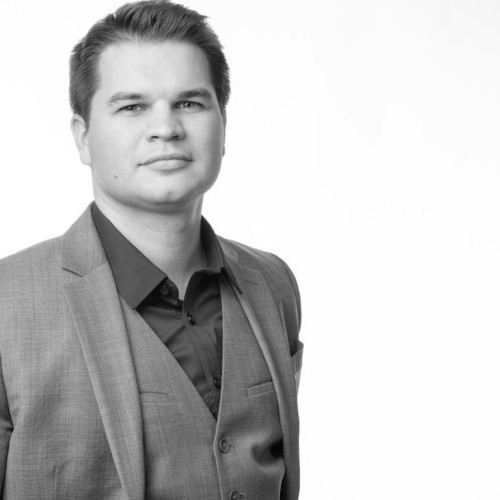
Stephen Parker

Adam Ferrari

Wendy Wu

Jon Sell

Jacquelyn (Jax) Nemitz
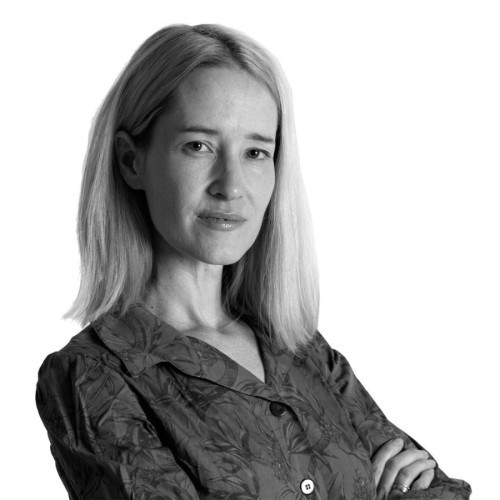
Amy Seek
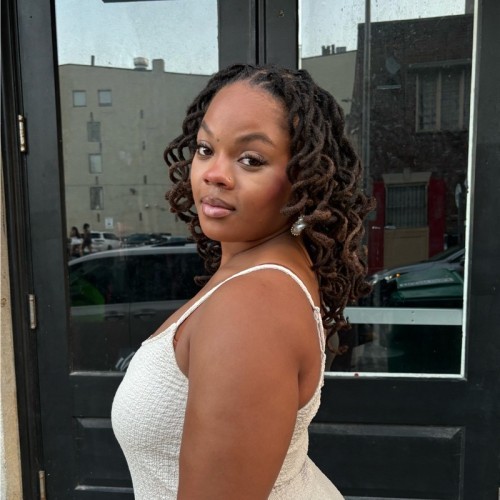
Illyana Bass
Haven
Abstract Copy
When the City of Philadelphia sought collaborators this past autumn, Stantec immediately saw the value of creating a project vision that would be something ground-breaking and inspirational. We assembled our design team, composed of subject matter experts in behavioural and mental health design, landscape design and urban design, healthcare masterplanning, and architecture. We spent two weeks in an intensive design charette, researching contextual precedents and the specific populations that the City sought to bring to the site – breaking apart the constraints and focusing on the human scale needs that stood at the centre of the request.By digging into the site to derive its value and meaning while, at the same time, dissecting the problem statement and understanding how a trauma-informed design approach might affect the programmatic objectives, our holistic approach was an attempt to share a cohesive vision for an equitable and respectable method of public investment to treat the chronically unhoused.
Haven’s approach brings together housing and health, with wrap-around services for formerly unhoused individuals in a transitional housing programme. This conceptual masterplan is in response to the Mayor of Philadelphia’s vision to create a “wellness village” along the Delaware River waterfront.
Building on evidence-based studies of therapeutic landscapes and incorporating empathetic practices of resident personas, we used a trauma-informed design approach for this new community. Our plan addresses four main resident neighbourhood groups: veterans, men, women, and seniors. Each neighbourhood offers a mix of inwardly focused resident amenities, campus-oriented therapy, and support and public spaces.
As our most vulnerable populations within urban centres are increasingly pushed out to the fringe of society in the name of public safety, this alternative approach capitalises on a city-owned parcel for development of a beautiful place to heal individuals suffering from long-term homelessness.
Stantec was not awarded the project, which is in the process of being designed by another design team hired by the City of Philadelphia. Instead, we carefully crafted a vision built on on an evidentiary and empathetic approach, understanding of the specific context that exists, pro-bono. The intent of this vision was not only to display an alternative model for communities and municipalities to emulate but also to strategically highlight a more thoughtful way to design for a vulnerable population.
Learning Objectives
- Trauma-Informed Design
- Transitional Housing
- Healing

Amy Jones
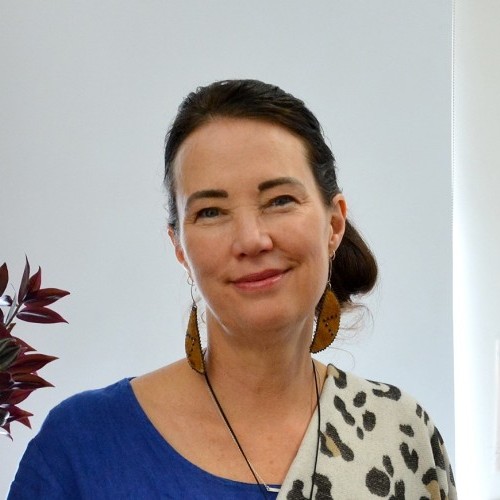
Nina Scott

Polly Atatoa Carr
Harti Hauora Tamariki; Delivering holistic care to improve child wellbeing through cross-sector action in Aotearoa New Zealand
Abstract Copy
Background: In Aotearoa New Zealand, there are large and enduring health inequities between Māori (Indigenous) and non-Māori tamariki (children). These inequities result from systems failures, differential access to the determinants of health and unresponsive, poor quality, and siloed health service delivery. The Harti Hauora Tamariki (Harti) programme was a whānau (family) Māori centric multi-level programme aimed to support wellbeing, health prevention, and address health determinants using a holistic approach.Methods: The Harti intervention included culturally safe engagement, holistic electronic needs assessment (including housing) and navigation to community wellbeing services. A randomised controlled trial (RCT) measured the impact of Harti at a hospital paediatric ward. Primary measures were hospital readmission risk at 30-days, six and 12 months post-hospital discharge. Analysis is also underway to examine five-year outcomes.
Results: In total, 965 children were recruited; 485 (50.3 per cent) in the intervention group; 480 (49.7 per cent) in the control group, with over half of participants Māori. No significant differences in readmission risk were found for any timepoints in the first 12 months post-discharge. Significant differences were found in the documentation of unmet need, referrals to and receipt of wellbeing services (including oral health checks and enrolment, and smoking cessation referrals), and satisfaction with care. The holistic needs assessment, delivered by community navigators, also improved referrals to housing support services, and therefore potentially improved health and equity gain. Qualitative interviews highlighted that the Harti approach prioritised relationship building, enabling better patient and family connections to healthcare services and assisting with better access to community services. Following the RCT, Harti has evolved into the Whiri Model of Care and has been implemented in emergency and community services, and further tested within research (e.g., cancer).
Conclusions: Harti had positive individual, whānau and systems-level impacts. Harti also enables health equity gain for Indigenous people and those with the greatest need, maximising the value delivered from scarce resources for improving wellbeing. We will discuss the Harti model of care, Whiri evolution into multiple settings (including community and cancer care coordination), cross-sector partnering, and describe how lessons learnt from these processes can upscale and be adapted to support further capacity building to advance health improvement and improve health equity. Bridging siloes between health and community services has the potential to greatly improve outcomes for children, their families, the wider community and society.
Learning Objectives
- Attendees will be able to define what a whanau centred holistic approach looks like
- Describe ways to enhance engagement with Indigenous populations
- Describe ways to address determinants of health

Jack Benton

Jamie Anderson

Junyan Ye

Ellie Barker
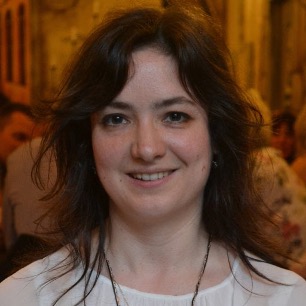
Vanessa Macintyre

James Rothwell

Jack Wilkinson

Dr Matthew Dennis

Prof David French
Impacts of a co-designed sustainable park on physical activity and other wellbeing behaviours in a deprived UK urban area: A seven-year mixed-methods natural experimental study
Abstract Copy
Background: There is a dearth of robust natural experimental studies examining the impact of urban green space interventions on physical activity. Very few studies have examined interventions involving sustainable park design solutions or interventions in areas facing socio-economic and environmental disadvantage. Further, most natural experimental studies rarely go beyond two years follow-up.Purpose: This study aimed to 1) assess the short- and long-term impacts of a new co-designed, sustainable “sponge park” in a deprived, high flood-risk area of Manchester (UK) on park use, physical activity, and other wellbeing behaviours; and 2) develop a theory of change to explain the mechanisms underpinning these intervention effects.
Methods: Two comparison sites were matched to two intervention sites using eight environmental correlates of physical activity. All sites were in the UK’s 10-per-cent most deprived areas. The primary outcome (observed walking) and secondary outcomes (vigorous physical activity, socialising, taking notice) were assessed using the MOHAWk behaviour observation tool. Observations were conducted at baseline in 2018, before the intervention was implemented in 2020, with follow-up assessments at three months (2020) and 15 months (2021) post-intervention. A 63-month post-intervention follow-up is planned for August 2025. Negative binomial regression models were used to estimate the effects of the intervention compared with the comparison group, controlling for key co-variates. Intercept surveys were also used to assess self-reported outdoor space usage at baseline and 12-months post-intervention. Qualitative interviews with local residents are currently being conducted to develop a theory of change based on realist methodology.
Results: Compared with the comparison sites, the total number of people observed walking at the intervention park increased at three-months (incidence rate ratio (IRR) 2.18) and 15-months post-intervention (IRR 3.44). Similar increases were observed in vigorous physical activity, socialising, and taking notice at the intervention sites compared with the comparison sites. Self-reported increases in outdoor space usage from baseline to follow-up were twice as large in the intervention sites compared with the comparison sites. The long-term 63-month follow-up results will also be presented, along with qualitative findings that will outline the underlying mechanisms driving these effects.
Conclusions/Implications: Creating sustainable parks is a promising intervention to promote walking and other wellbeing behaviours, especially in deprived areas. More robust mixed-methods natural experimental studies like this are needed to inform policymakers on how urban green space interventions can promote physical activity and wellbeing in different contexts.
Learning Objectives
- 1. Understand the application of natural experiment study designs to assess the impacts of real-world environmental interventions on physical activity and wellbeing behaviours.
- 2. Learn how to develop a theory of change that explains the underlying mechanisms driving the effects of urban green space interventions on health and wellbeing.
- 3. Understand the policy and practical implications of evaluating urban green space interventions, with a focus on reducing health inequalities in deprived areas.



